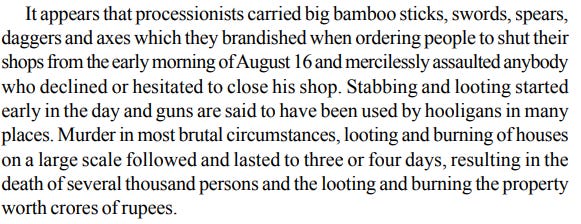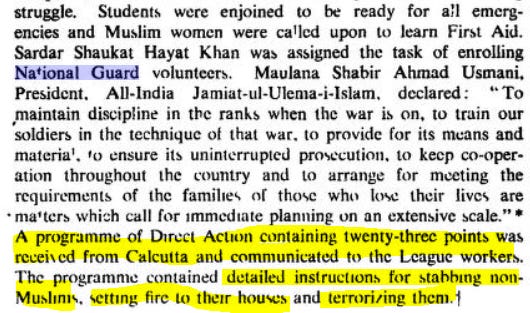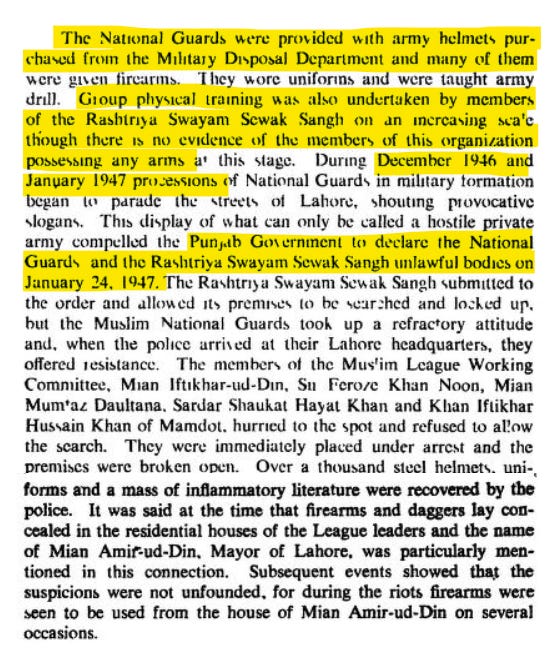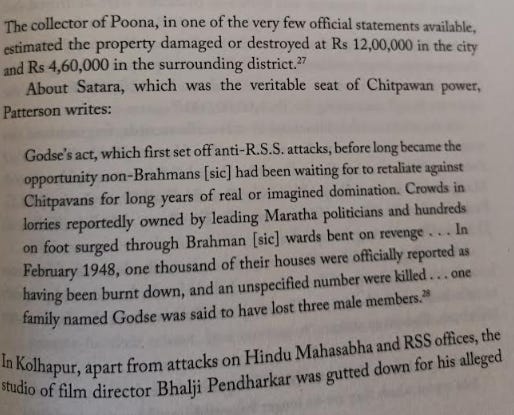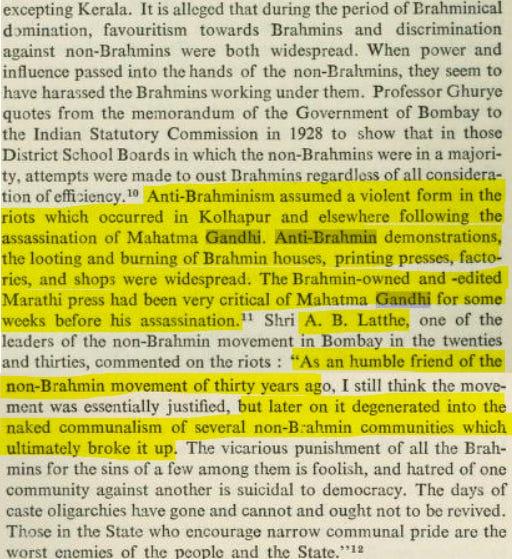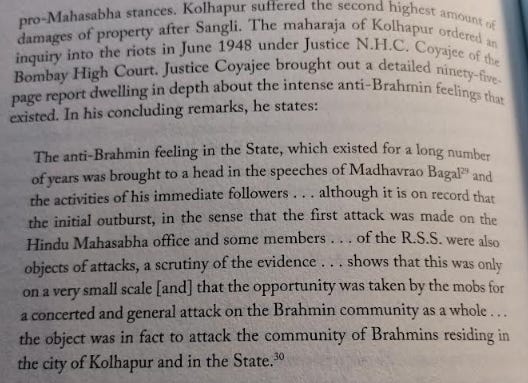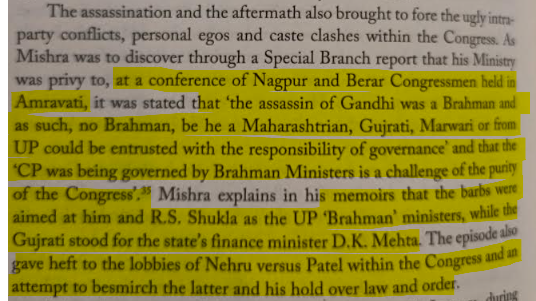Drishtikone Newsletter #335: The Anti-Brahmin 1948 Massacres
From 1946 to 1948 was the darkest period in India. Starting with Direct Action Day massacres to Partition massacres to the 1948 Brahmin Massacres, a lot of blood was spilled. Let us look at what happened when caretakers of non-violence destroyed us.
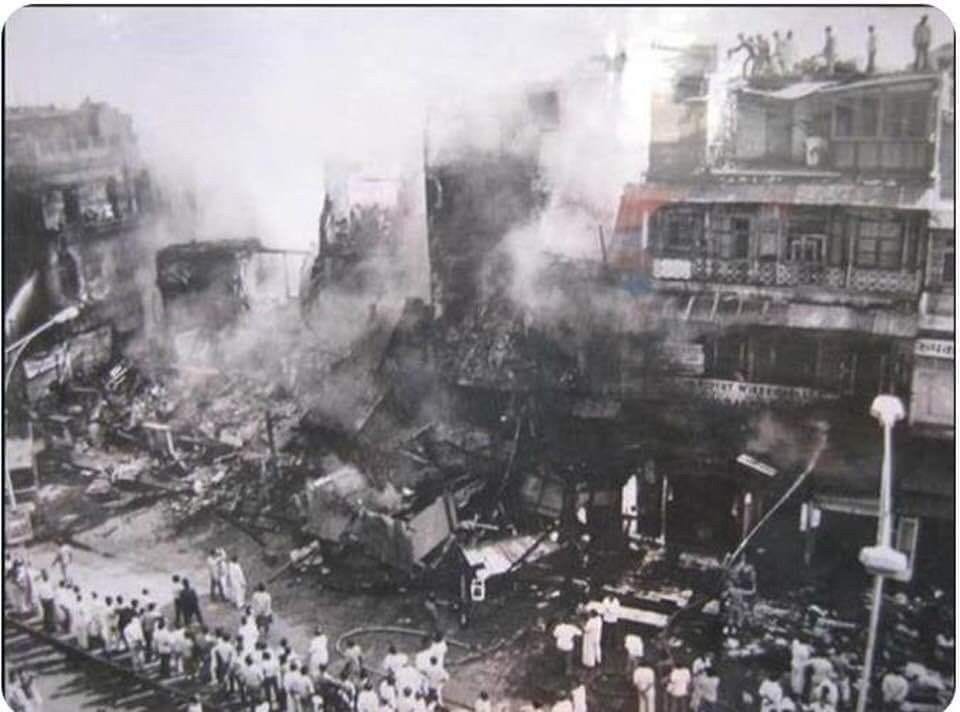
“Who controls the past controls the future. Who controls the present controls the past.” ― George Orwell, 1984
Those who feign a virtue can kill for it as well.
That is how the rules of pretense work. No one has wiped out humans from as many continents on this planet as those who swear by "love thy neighbor". Indeed.
India, and more specifically the Hindus, are the victims of those who have created their own halos out of the blood of those they wanted to rule. On the shoulders of their victims.
All in the name of morality.
Those exalted ones, the Mahatmas, the Saints, the self-styled caretakers of our values should be questioned. Ruthlessly, directly and without hesitation.
For, in our attempt to stand up for ourselves and our sanity lies the future of our coming generations.
We will go through one of the darkest chapters of India's independence years and put that in the context of those times and events. So we can evaluate the players for what they were. Not, what the PR engines of the ecosystem made us believe in.
Watching the massacres - Collaboration by Silence
On August 31st, 1946, Congress Working Committee passed a resolution on the Calcutta massacres (called incorrectly "riots"). A resolution that started off by saying that
"The Working Committee have heard with deep sorrow reports about the recent happenings in Calcutta in connexion with the observance by the Muslim League of Direct Action Date on August 16 and on subsequent days. They deplore the serious loss of life and property and condemn in particular the acts of brutality committed against defenceless persons, especially women and children."
The Congress Working Committee then offered their "sympathy to the innocent sufferers of whatever community and party and call upon them to meet the situation with courage, forbearance, and fortitude."
In the 4th para, the resolution discusses the atrocities and the damage that the Muslim mobs unleashed by the Muslim League wrought on the innocents.
And, then in the great tradition of Secular whataboutery, the resolution went into how the "Hindus indulged in reprisals wherever they could and a large number of Muslims were killed."
And just as the Barkha Dutts of today would find "human stories", they noted the following.
This was in August 1946.
August 16th, 1946 was selected as the Direct Action Day by Jinnah. It was done deliberately for a reason. That day in 1946 was the eighteenth Day of Ramzan and the day was associated with the Battle of Badr which resulted in Prophet Mohammad’s first decisive victory over the heathens and the subsequent conquest of Mecca. The then Chief Minister of Kolkata and an important Muslim League leader Suhrawardy and his Muslim League colleagues delivered fiery speeches reminding Muslims of Bengal of the victory of Badr and exhorting on them to follow in the footsteps of the Prophet and wrest a victory for Islam on 16 August. (Source)
Its public stance notwithstanding, Muslim League was preparing for an all out assault against the Hindus in Bengal and Hindus and Sikhs in Punjab.
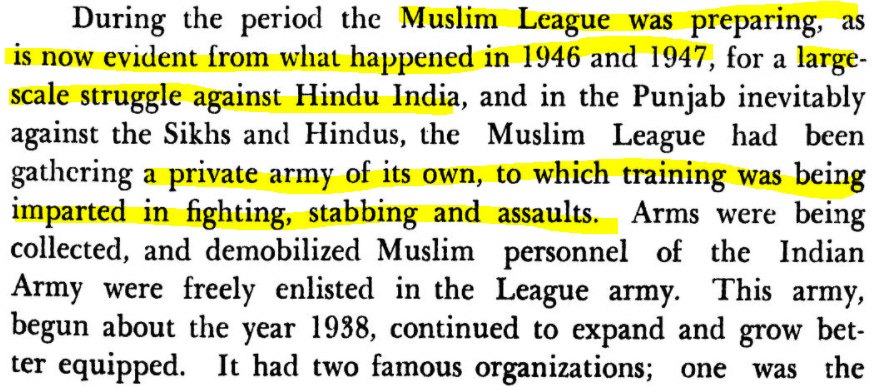
It was building a force called Muslim League National Guard in Punjab and Bengal. In Bengal, it was also called Azrail Bahini. In Islam, the “Devil of Death” is known as Azrail. The intention, as well as the strategy, was clear.
The 54th session of the Congress Party was held in Meerut on November 23-24th 1946.
Remember, by then the Direct Action Day massacres had already killed 5,000 to 10,000 within 72 hours (Source). In October, large-scale massacres of Hindus in the massacre in Noakhali and Tippera districts had also happened.
The deeds, potency, and ambitions of the Muslim League and their National Guards should have been clear even to the most foolish person.
At that time, the Bombay Chronicle described the Congress leadership as "confused."
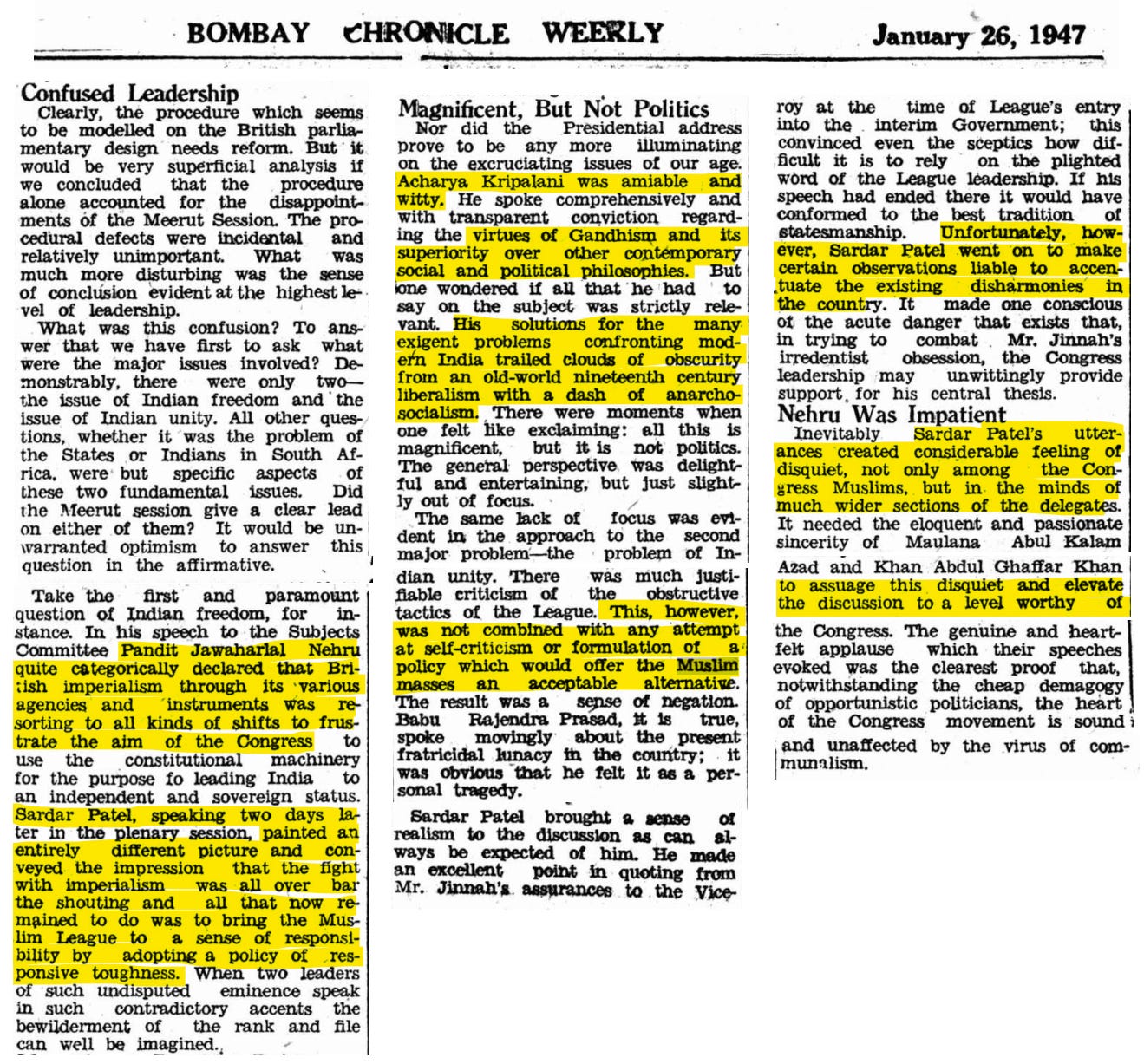
Confused not because they did not recognize the threat that the Muslim League and their actions were creating.
But because Sardar Patel was warning against it.
Please read a more detailed account of how the Muslim National Guard executed the partition of India in Issue #333: The Real Story of India's Partition
This was the situation in India when 1947 started.
On January 24th, the Punjab government declared Rashtriya Swayamsevak Sangh and Muslim National Guards as "unlawful bodies".
The situation, intent, and preparation of the Muslim National Guards were fairly clear. But certain sections and their leaders were looking at this situation in a strangely white-washed manner.
On January 25th, Liaquat Ali Khan declared that Muslim National Guards were an integral part of the Muslim League. This was an indicator to begin violence.
The Indian press, interestingly, was calling the Muslim National Guards and Muslim League actions - "Satyagrah".
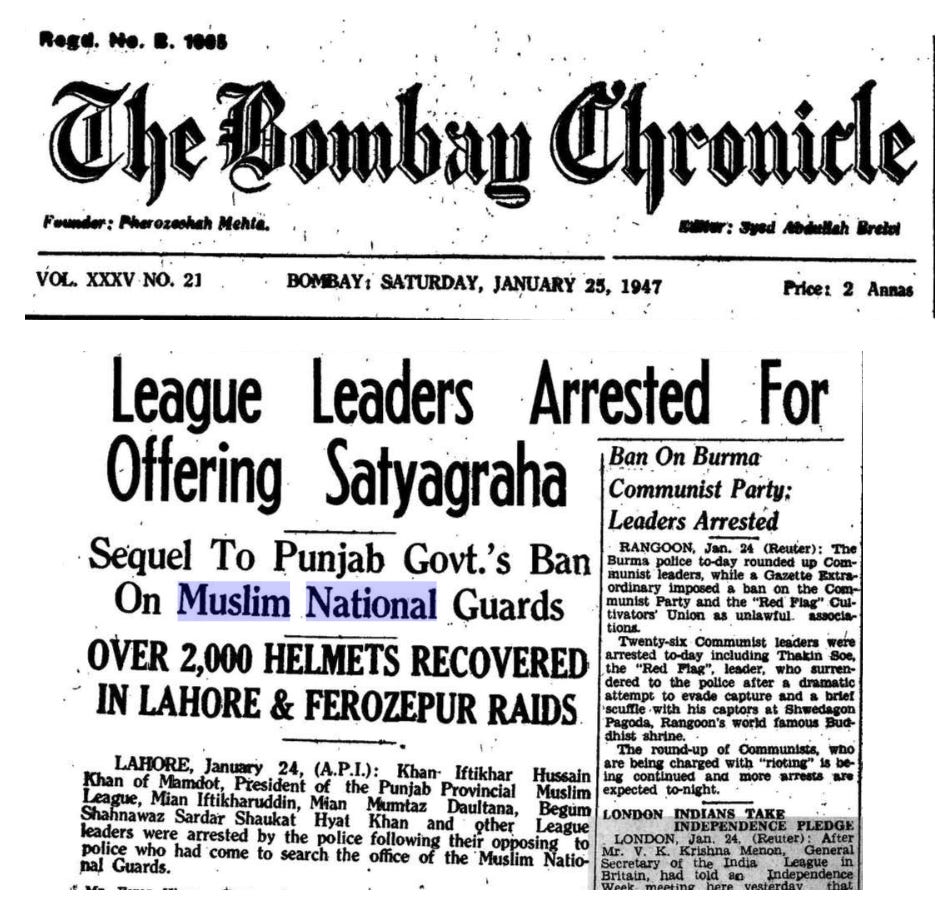
When vile and brutal violent actions or their precursors are articulated in a language that denotes "fight for truth", you can be rest assured that a large and violent calamity will befall society.
When the violence started in Punjab, the execution was ruthless and every level of administration, police, goons, political leadership, and the masses collaborated. To kill, rape, and throw the Hindus and Sikhs out of Punjab.
Gujranwala was one place where the Hindus and Sikhs had organized themselves against the onslaught of Muslim National Guards better than most areas. However, by the end of July Muslim Deputy Commissioner took charge. On July 27th, the stabbing of Hindus and Sikhs started. It was done with the collaboration of the police and administration. When Mehar Ghulam Mohammed, a Police Inspector arrived from Amritsar, he gave orders to kill all non-Muslim policemen. Between 11th-17th August areas with substantial Hindu and Sikh populations like Guru Nanakpural Hakim Rai, Mandi Khajurwali, Brahm Akhara, Chauk Chashma, Sheikhupura Gate area, etc had been razed. Dr. Tej Bhans's house was attacked. They were 14 family members. They somehow repulsed the attack. But Imdad Hussain Shah, a Sub-Inspector brought in reinforcements and the house was set on fire, and men were first shot dead. Then women with kids in their arms were shot. Kamoke was a prosperous trading area of Hindus and Sikhs SI Hussain Shah carried out a massacre there as well. Meanwhile, Asghar Ali Shah, the Assistant Sub-Inspector of Naushehra Virkan would collect the Sikhs on the pretext of some inquiry and shoot them dead. (Source: Muslim League Attack on Sikhs and Hindus in the Punjab)
It is estimated that between 10 and 20 million people were displaced and around 2 million died. (Sources - 1 , 2 )
Refugees and Mahatama's Violence
When the refugees poured they had no way of livelihood. And they had no place to go. So they concentrated around whatever areas and structures they could find. That often meant public places like temples, gurudwaras and mosques.
It was in this desperate and sad time that Gandhi decided to play his "Secular" card against the refugees.
What was a case of these refugees finding a small sense of sanity by praying to their murtis they had somehow brought from their now destroyed homes of centuries and millennia, was used as a weapon against them! They were accused of converting mosques because the refugees had dared to place their possessions alongside their other belongings.
Gandhi, the old senile idiot that he was, went on a fast. To oust the refugees from the mosques. Delhi winter was on in January when we wanted the "voluntary evacuation by non-Muslims of all the mosques in the city which were being used for residential purposes or which had been converted into temples".
As the Deputy Commissioner found out, the facts were very different!
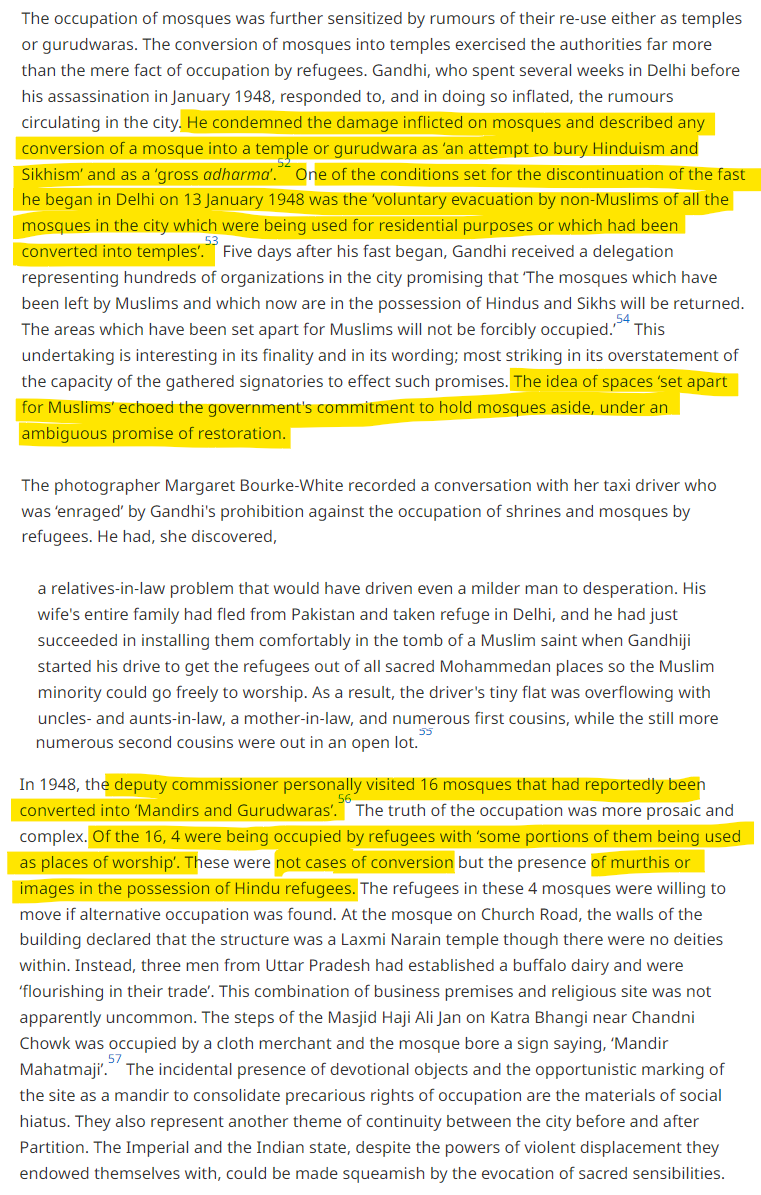
These refugees were just trying to get by.

The refugees from the various refugee camps in Old Fort and Kingsway Camp were moved to localities around Delhi. Localities named after the Indian leaders. The first was "Moti Nagar" - named after Motilal Nehru.
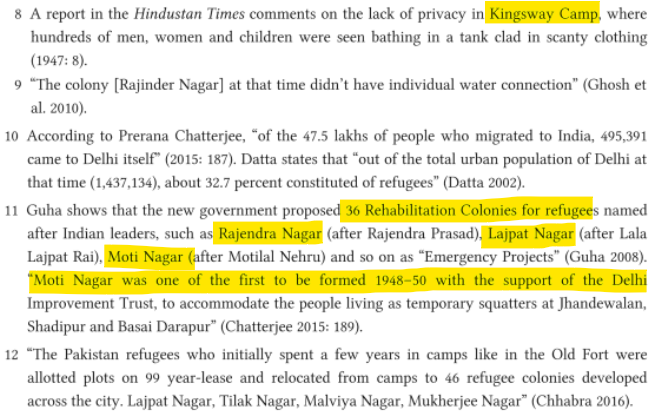
Many relief camps were set up by the Rashtriya Swayamsevak Sangh for the refugees.

This was a very difficult period for the people who had lost everything in their lives, for those who were lucky to be alive. They had somehow, quite somehow, reached on this side of the border and found refuge in some unlivable spaces. Sometimes, without any availability of respect or privacy.
On January 30th, 1948, Gandhi was assassinated by Nathuram Godse.
Orchestrating Massacres for establishing Fascist Ahimsa
And, that started another chapter of violence that has no mention in Indian newspapers or history books. It was a genocide that has been actively buried by the Congress governments and the administrations that were loyal to them.
After the assassination of Mahatma Gandhi by Nathuram Godse, a Chitpavan Brahmin, Marathi Brahmins were targeted by kunbi- Maratha community led by Congress party leadership.
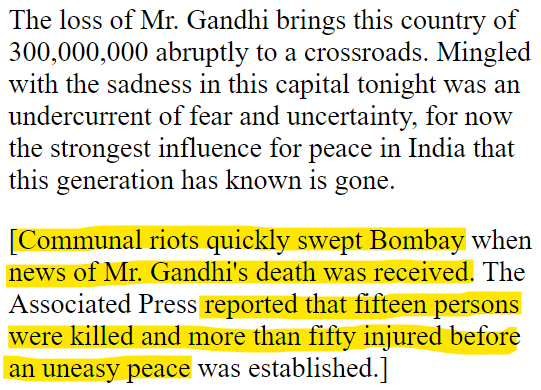
Pune in the 1940s was divided into two parts, Western and Eastern. This was a sociological divide as well. While the represented by Kesari Wada, was dominated by Brahmins and their culture, the eastern Pune was represented by Jedhe Mansion and Keshavrao Jedhe's Bahujan samaj.
One of Keshavarao's protege was Yashwantrao Chavan. He was a Kunbi-Maratha from the Satara District. He was close to Nehru and Sardar Patel as well. He later went on to become the first Chief Minister of Mahrashtra.
Maureen LP Patterson mentions that "Even today, scholars cannot get access to Maharashtra's archival material for period since independence. So, the definitive study is yet to come." ("Savarkar a Contested Legacy" by Vikram Sampath, pg 468)
The violence started in Pune, Bombay and Nagpur. The violence magnified and spread to the Marathi linguistic region which included Satara, Belgaum and Kolhapur. These mobs spread across 300 districts of all the 13 Talukas.
The initial targets were people with the Godse last names. Then the violence and mayhem expanded to Chitpawan Brahmins. Soon it included all the Brahmin sub-castes and surnames.
Kesari had printed that a "Maratha Hindu" had been involved in Gandhi's assassination on January 31st edition. That meant a "non-Brahmin Maharashtriyan. So, it tendered an apology on February 14th, 1948.
Mobs were carrying Kerosene canisters, rods, and machetes. Houses, shops, printing presses, and factories were set on fire with kerosene-soaked paper and cotton balls. Men were killed and women raped.
The attacks against the Brahmins were reminiscent of how the Muslim National Guards had used lorries and vehicles to kill the Hindus and Sikhs in what was then, Pakistan.
Vasant Pradhan, a journalist with the Marathi daily Chitra and a socialist himself wrote about the riots.
“I lived in Khar and my office was at Fort. After finishing the edition, when I caught a train, I realised that rumours were spreading.” “Next day, it became clear that the assassin was a Maharashtrian Brahmin Nathuram Godse. After that started a series of attacks on the houses of Brahmins and the offices of rightist organisations.” “The office of Hindu Mahasabha near Dadar post office was a likely target in the aftermath of Gandhi’s assassination. To avoid the attack, some women party workers stood outside with Jawaharlal Nehru’s posters in their hands. They were spared.” “By this time, politics has taken its place. Socialist leaders Nanasaheb Gore and Shankarrao More argued that attacks on Brahmins were a result of their predecessors’ atrocities. Senior journalist PK Atre defended the Brahmins and appealed not to believe what Gore and More were saying. In court, he admitted that he had no idea that Brahmins will be attacked.” (Source - DNA India)
That Nehru's posters served as a "shield" shows the instructions and the political leanings of the killing mobs that were going after the Brahmins in Maharashtra.
Most of the political commentators chalked it up the "anti-Brahmin" hatred that they surmised was due to decades and years of "Brahmin domination."
A typical justification of genocide in true Nazi tradition of playing the victim card while killing with brutality to wipe out an entire community. Brahmins in this case.
Justice Coyajee Commission that inquired into the Post Gandhi Assassination violence in June 1948 on the order of Maharaja of Kolhapur gave a 95 page report. That too focused heavily on anti-Brahmin feelings and terms the whole situation as "scrutiny of evidence... shows that this was only on a very small scale.."
In an interesting and insightful "letter to the editor", a reader shared some of the details of what happened in the Brahmin massacres of 1948.
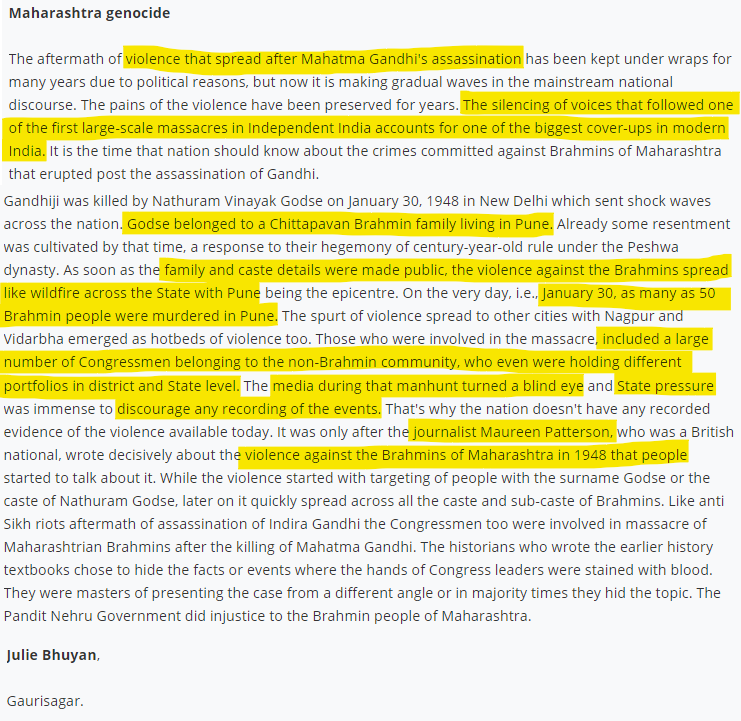
This whole massacre underscored a shift that was taking place in Congress and that would define the polity and sociological narratives in India for the future - sponsorship of anti-Brahmin hatred by the establishment.
From 11th to 15th March, 1948 a meeting happened with the title "Gandhi is Gone. Who will guide us now?" The leaders who participated in this were:
Jawaharlal Nehru
Dr. Rajendra Prasad
Maulana Azad
Vinoba Bhave
Acharya Kriplani
Others
It was termed as an "introspection". And, the proceedings started off with a self-described statement of who were there to do what.
Believers in Ahimsa.
'Let the State fight, we should train people in Ahimsa'.
The discussions focused on how this select group comprised of men who were the sole preservers of Ahimsa. Something that everyone - from the refugees from Punjab, the RSS working in rehabilitation of these refugees, and Hindus in general - was working eagerly to destroy.
Remember, this "introspection" was happening just as thousands of Brahmins had been massacred in Maharashtra and Congress establishment was busy trying to castigate the entire community across the country as villains.
In this backdrop, Vinoba Bhave said this. Please read this carefully with the context of the recent happenings, the complicity of the Congress leadership in the run-up to partition and its massacres by remaining quiet or allowing them to happen, how refugees were handled, and finally the Brahmin massacres.
Vinoba Bhave, the pretentious saint that we are made to believe that he was, knew about the Brahmin massacres as is obvious from his remarks. He also was guilty that he did not do anything to stop it all.
What is he most worried about though? The RSS. His hatred for RSS and "its methodology" is what he trains his guns at. The very excuse and justification that the entire Congress establishment used to carry out the Brahmin massacres were what he was endorsing as well. How hollow could one be?
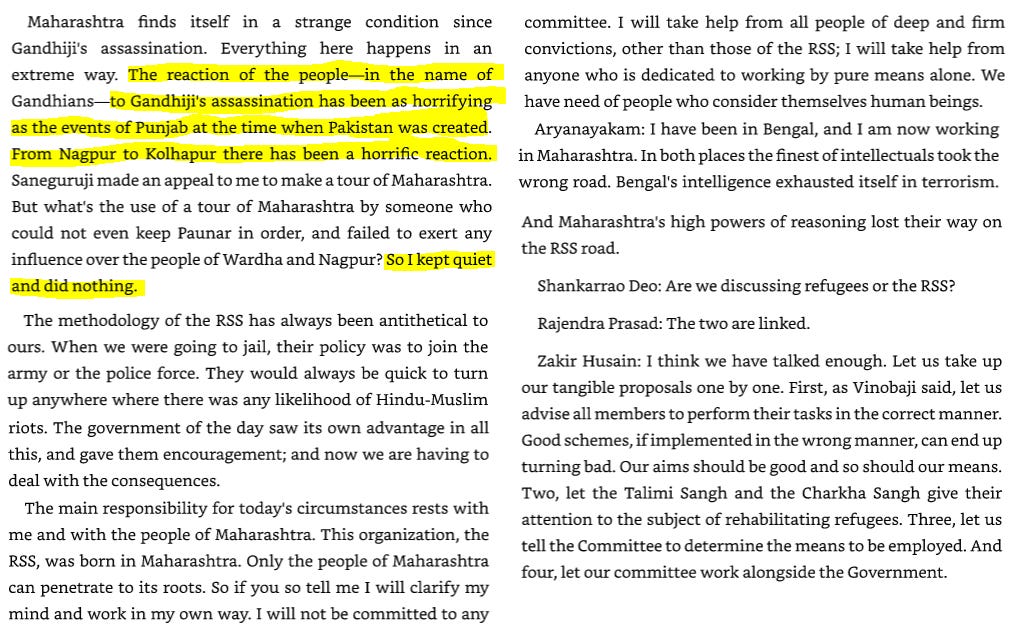
Most of this fake introspection focused on two things - hatred for RSS and 'concern for refugees who were being 'influenced by the RSS' and whether the new organization that these Ahimsa-believers wanted to create should be called a Sangh or a Samaj? One had links to RSS, their hate object, and the other to Arya Samaj, another object of hate. Both for the same reason. They spoke for the Hindus.
They created Sarva Seva Sangh.
In 2020, when Indian National Congress marked its 136th year, Sanjay Jha lamented how the party was not able to hold its meeting in 2018 (the 150th year of Gandhi) at Sevagram Ashram in Wardha - the place of Sarva Seva Sangh.
His tirade was again against the same enemy - the RSS.
The crisis is so deep that the party was denied permission to hold the Congress Working Committee meeting at the Sevagram Ashram in Wardha, Maharashtra, on October 2, 2018 — the beginning of the Mahatma’s 150th year — despite the current leadership’s best efforts. Eventually, the meeting was held in Wardha but outside Sevagram. The party would not have suffered this humiliation but for its lack of clout in the Sarva Seva Sangh, the umbrella organisation that looked after the ashram and was dominated by socialists whose dislike of the Congress trumped their ideological aversion to the RSS. (Source)
Whether it was RSS or the Brahmins, Congress and its ecosystem has always used these dog whistles to unleash violence, subjugate sections of society, and usurp power for themselves.
In that, its tools have been no different than those of Jinnah's rabid mobs.
Video Corner - Save Soil
The soil on this planet is dying. 52% of all soil has already been degraded. What this means is that the very substratum that provides us with food and nutrition can no longer sustain us. And this is rapidly becoming worse.
A 65-year-old man is on a 30,000 km journey across 25 nations starting from the United Kingdom to India in a span of 100 days to raise awareness about this global catastrophe facing us. In between this arduous schedule, he is meeting with a host of leaders from various nations, global experts, representatives of the UN, etc to create actions to reverse the situation.
He could very well have taken it easy at this age and done a few online campaigns. Instead, he has taken on this dangerous (riding through all terrains rain or shine) and tiring trip while poking our consciousness.
If not for him. At least for our coming generations, let us wake up. Go to Conscious Planet for more information.
If you like our content and value the work that we are doing, please do consider contributing to our expenses. CHOOSE THE USD EQUIVALENT AMOUNT you are comfortable with.
If you like this post - please share it with someone who will appreciate the information shared in this edition.
Today’s ONLINE PAPER: Check out today’s “The Drishtikone Daily” edition. - THE DRISHTIKONE DAILY





